FIDE is excited to announce the participating teams of the 45th Chess Olympiad. The Chess Olympiad is growing with every edition, and the 45th in Budapest is going to be the largest.
The record-breaking 193 teams in the Open section and 181 squads in the Women’s competition will gather in the Hungarian capital from September 10-23 to battle in the biggest team chess event of the biennium.
Notably, several women’s teams – Liechtenstein, Guernsey, Grenada, St. Vincent and the Grenadines, St. Kitts and Nevis, the US Virgin Islands, St. Lucia, Nauru, and the Cayman Islands – will make their debut in Budapest.
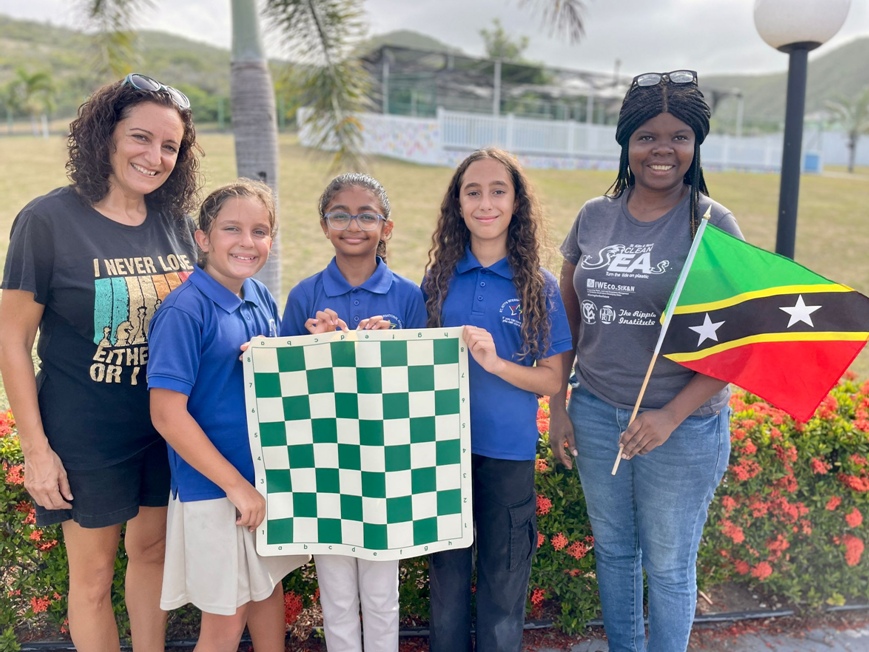 St. Kitts and Nevis female team – one of the first-timers in the upcoming Olympiad
St. Kitts and Nevis female team – one of the first-timers in the upcoming Olympiad
In a historic move toward inclusivity, the 2024 Chess Olympiad will welcome a team of refugees, as officially approved by the United Nations High Commissioner for Refugees (UNHCR). This groundbreaking decision aims to promote diversity and support displaced individuals, reinforcing chess as a tool for positive change.
2024 FIDE Chess Olympiad Open Teams
Team USA captained by John Donaldson tops the starting list in the open section. Although Hikaru Nakamura opted not to participate, with an average rating of 2758 the US fielded a formidable lineup of Fabiano Caruana, Wesley So, Leinier Dominguez Perez, Levon Aronian and Ray Robson and looks like one of the pre-tournament favorites.
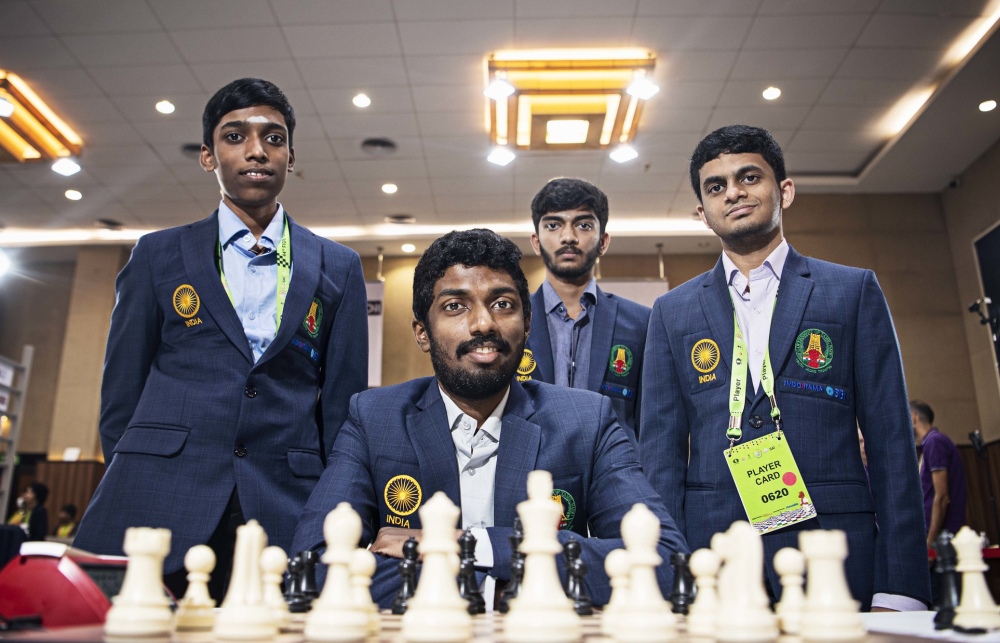 India 2 in Chennai – Praggnanandhaa R and Gukesh D will play for the main team in Budapest
India 2 in Chennai – Praggnanandhaa R and Gukesh D will play for the main team in Budapest
The Indian team, which features the current challenger Gukesh D and top tenners Arjun Erigaisi and Rameshbabu Praggnanandhaa, is stronger than ever and undoubtedly will be one of the main contenders for gold.
The reigning champions team Uzbekistan preserved the winning roster and will be eager to repeat their 2022 success and retain the title. Notably, none other than Vladimir Kramnik will serve as the team captain.
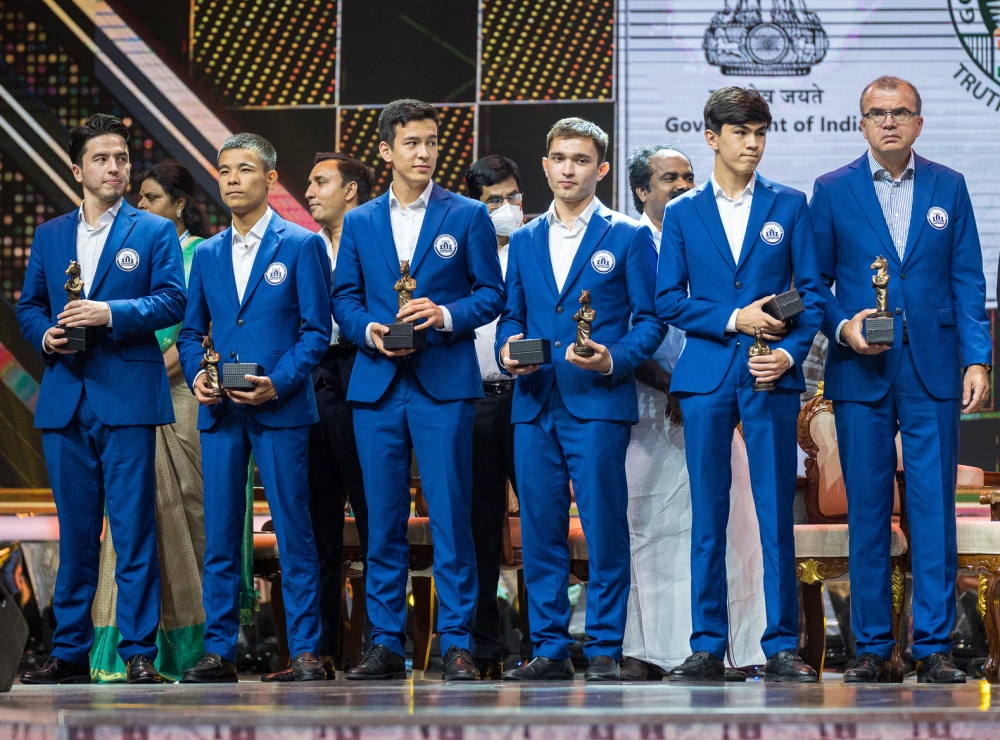
After missing the 44th Chess Olympiad, China is sending two teams to Budapest. It will be interesting to see how the reigning World Champion, in-form Wei Yi, Yu Yangyi and others will perform in the Hungarian capital.
Magnus Carlsen leads Norway, but the world #1 will need a lot of help of his teammates to contest for the podium. Even if the team doesn’t succeed, Magnus will have a shot at winning individual gold, repeating his achievement at the European Team Championship.
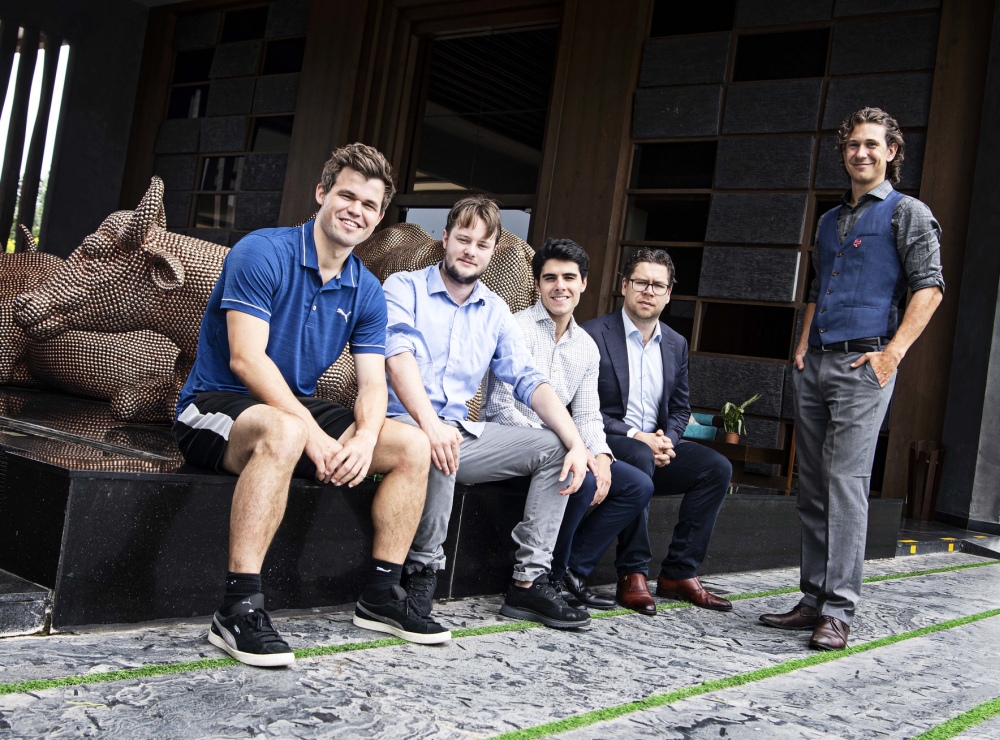
Poland, Netherlands, England (reinforced by Nikita Vitiugov) and the home team Hungary (boosted by the return of Richard Rapport) all have very solid, balanced lineups and cannot be discounted.
Last but not least, a young and ambitious Iranian team might surprise many and become a “joker-in-the-pack”.
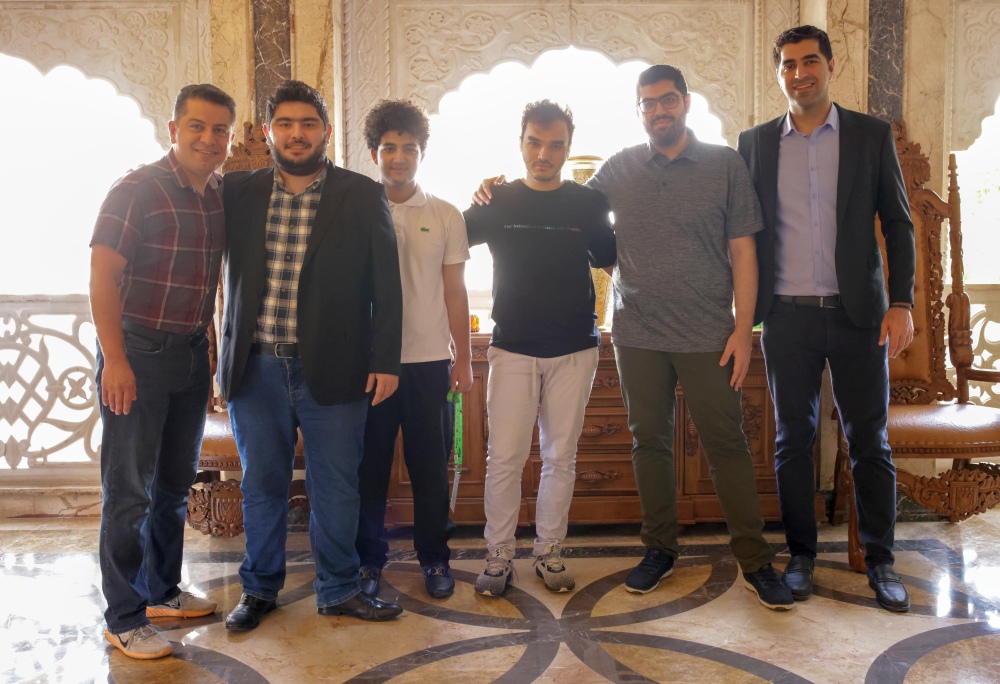
2024 FIDE Chess Olympiad Women Teams
Team Georgia captained by Vladimir Tukmakov enters the women’s competition as the rating favorite. The runners-up in Chennai 2022 the Georgian ladies (Nana Dzagnidze, Nino Batsiashvili, Lela Javakhishvili, Bella Khotenashvili and Salome Melia) will try their best to move one step up and win coveted gold.
The second seed India that won bronze in Chennai will miss Humpy Koneru this time, but with a rising star Divya Deshmukh joining Rameshbabu Vaishali, Harika Dronavalli, Vantika Agrawal and Tania Sachdev in Budapest, the team seems to be a real contender for the title.
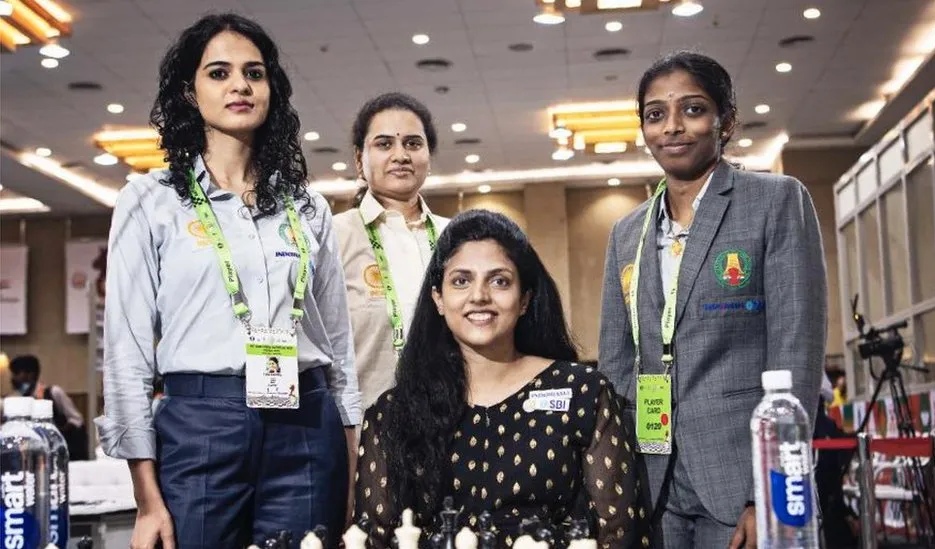
China has as many as four players in the women’s top 10, but none of them will play in Budapest. Nevertheless, seeded fourth, this young team led by Zhu Jiner and 14-year-old national champion Lu Miaoyi can go far if they catch the wind in their sails.
In the absence of the Muzychuk sisters, who skipped the Olympiad, sixth-seeded Ukraine will face the challenging task of defending its title. The Ukrainian ladies will most likely not succeed, but we can’t write them off completely.
The third and fifth seed, Poland and Azerbaijan, fielded their best players and will be teams to be reckoned with.
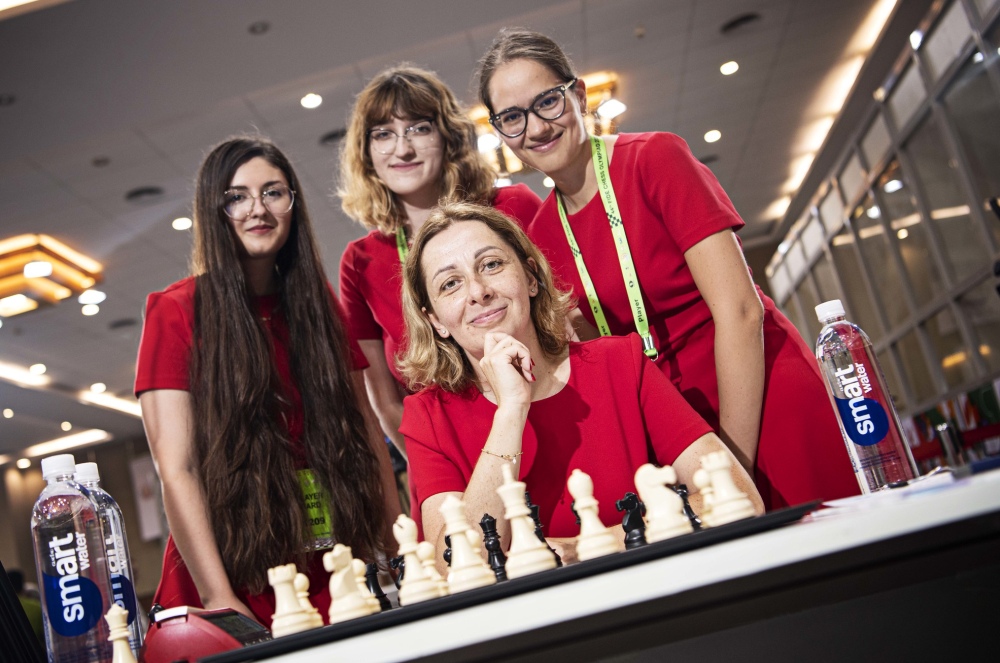
Bringing together acclaimed heavyweights and rising stars from all across the globe playing for their national teams, the Chess Olympiad is an event like no other. We are in for an eleven-day magnificent spectacle showcasing chess brilliance in Budapest.
Photos: Lennart Ootes, Madelene Belinki, Mark Livshitz and Stev Bonhage

